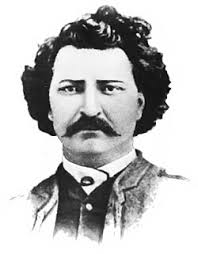The Legacy of Louis Riel in Canadian History

Introduction
Louis Riel remains one of the most significant figures in Canadian history, known for his role as a political and spiritual leader in the struggle for Métis rights in the 19th century. His life and actions have had lasting effects on Canada’s national consciousness and Indigenous rights movements. Understanding Riel’s contributions is essential as discussions around decolonization and reconciliation continue to evolve in Canada.
Historical Background
Riel was born on October 22, 1844, in the Red River Settlement, present-day Manitoba. He was raised in a predominantly French-Canadian and Métis environment, giving him a unique perspective on the cultural and political issues facing the Métis people. During a period of increasing tensions between the Métis and the encroaching Canadian government, Riel emerged as a leader. His participation in the Red River Rebellion of 1869-1870 was pivotal in negotiating the terms under which the territory would join Canada.
Key Events
The Red River Rebellion culminated in the establishment of the Manitoba Act, which created the province of Manitoba and provided certain protections for the rights of the Métis. Riel’s leadership during this time was vital; he organized the Métis community and was instrumental in negotiating the terms of union. However, after the rebellion, Riel faced considerable backlash, leading him to exile in the United States.
In 1885, Riel returned to Canada to support the Métis in Saskatchewan during the North-West Rebellion. The conflict with the Canadian government once again highlighted the struggle for Métis rights but ended tragically with Riel’s capture and subsequent execution on November 16, 1885, for treason.
Impact and Legacy
Riel’s life and actions have resonated through generations. He is often regarded as a martyr for Métis rights and Indigenous identity. His legacy has fostered a growing recognition and respect for the rights of Indigenous peoples in Canada. He is celebrated as a folk hero, with several events, including Louis Riel Day, held in his honour across the country.
Conclusion
Louis Riel’s complex legacy continues to inspire discussions about rights, identity, and justice among Indigenous peoples in Canada. As Canada progresses towards reconciliation, Riel’s contributions remind us of the ongoing struggles for recognition and the importance of understanding Canada’s historical injustices. By recognizing figures like Riel, Canadians can pave the way for meaningful dialogue about the future of the nation and its relationship with Indigenous communities.









